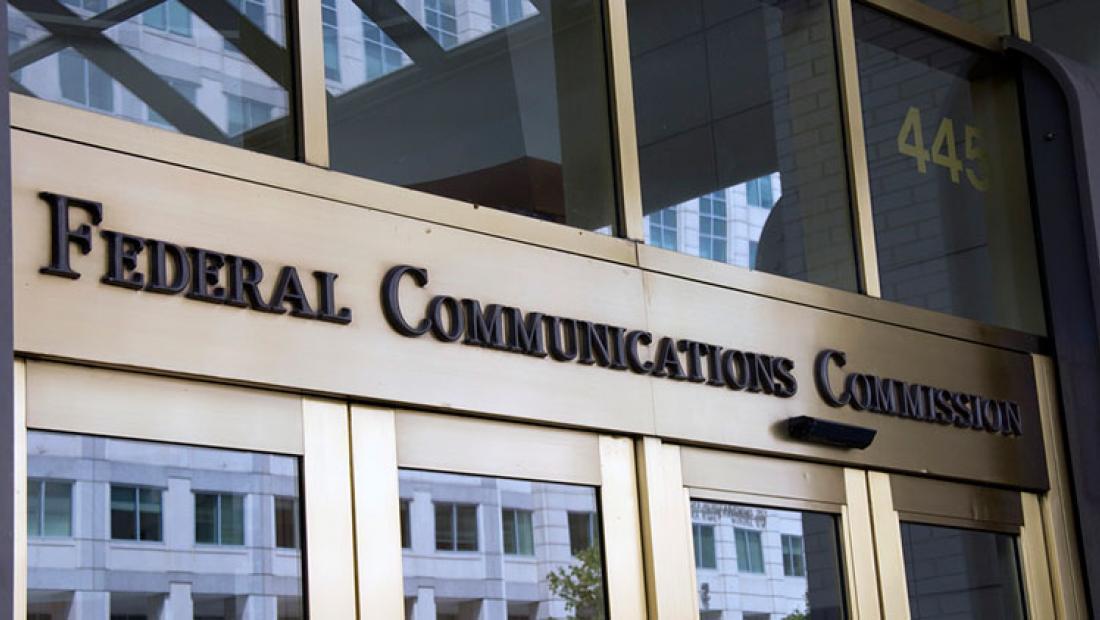Net Neutrality Rule Rollback Takes Next Step to Implementation

The smarter way to stay on top of broadcasting and cable industry. Sign up below
You are now subscribed
Your newsletter sign-up was successful
The FCC has taken the next step toward instituting its network neutrality regulation rollback.
On Tuesday (March 27), the FCC signaled it has submitted the information-collection portion of the Restoring Internet Freedom order to the Office of Management and Budget, according to the Federal Register, which plans to publish that OMB submission March 28.
The rollback of the internet regs--which was approved by a divided commission Dec. 14, 2017--can't take effect until the Office of Management and Budget gets comment on that information collection, approves it, and the FCC then sets a date for the rules to go into effect.
According to the FCC notice to the register, there will be a 30-day comment period to the OMB starting March 28.
OMB has to review any new information-collection obligations in regulations per the Paperwork Reduction Act, to insure they do not overly burden those regulated entities.
Ready, Set...Net Neutrality Challenges Can Begin
While rules can go into effect before the PRA review is completed--the FCC's ATSC 3.0 framework order is a recent example--that is not the case with the FCC's elimination of the rules against blocking, throttling and paid prioritization. That is because enforcement of network neutrality without those ex ante (before the fact) prohibitions depends on ISP's disclosing exactly how they are operating per enhanced transparency provisions, so that the Federal Trade Commission and Justice Department can decide whether that is unfair or deceptive or anti competitive.
The smarter way to stay on top of broadcasting and cable industry. Sign up below
The FCC notice reads, in part: "As part of its continuing effort to reduce paperwork burdens, and as required by the Paperwork Reduction Act, the Federal Communications Commission invites the general public and other Federal agencies to take this opportunity to comment on the following information collection.
Comments are requested concerning: "[W]hether the proposed collection of information is necessary for the proper performance of the functions of the Commission, including whether the information shall have practical utility; the accuracy of the mission’s burden estimate; ways to enhance the quality, utility, and clarity of the information collected; ways to minimize the burden of the collection of information on the respondents, including the use of automated collection techniques or other forms of information technology; and ways to further reduce the information collection burden on small business concerns with fewer than 25 employees."
The FCC has concluded that it will take 1,919 ISP's a collective 49,849 hours to provide the requisite information to the FCC, at total cost of $560,000.
ISP's and others will now have a chance to tell OMB whether they think that estimate is accurate and whether, if accurate, that is too much of a burden.
An FCC spokesperson was unavailable for comment at press time.
On Dec. 14, in a politically divided 3-2 vote (On Dec. 14, in a politically divided 3-2 vote, the FCC chairman Ajit Pai-led Republican majority eliminated the rules against blocking, throttling, paid prioritization, as well as the "general conduct standard," which gave the FCC a way to potentially prohibit anticompetitive or discriminatory ISP conduct that was not covered by the rules.
Importantly, it also reclassified ISP's as Title I information services, removing them from the common carrier regulatory bucket and giving chief oversight of ISP conduct to the Federal Trade Commission under its unfair, deceptive and anti competitive authority.
The item restores the FTC's authority over broadband regulation, and adopts a transparency rule that requires ISP's to let the government and web users know how they are managing their networks and what business practices they are using, which the FTC can enforce if those practices are unfair or deceptive or anti competitive, and the Justice Department can enforce if they violate antitrust laws.
That means ISP's could block or throttle, though they have promised not to, and engage in paid prioritization, which some ISP's may want to try as a way to differentiate their services.
Related: FCC, FTC Will Collaborate on Monitoring Open Internet
The FCC also asserts the ability to preempt state or local attempts to create their own net neutrality laws or regulations, something that will definitely be tested in court given the states that have already adopted their own net neutrality laws and contract provisions.
Contributing editor John Eggerton has been an editor and/or writer on media regulation, legislation and policy for over four decades, including covering the FCC, FTC, Congress, the major media trade associations, and the federal courts. In addition to Multichannel News and Broadcasting + Cable, his work has appeared in Radio World, TV Technology, TV Fax, This Week in Consumer Electronics, Variety and the Encyclopedia Britannica.

